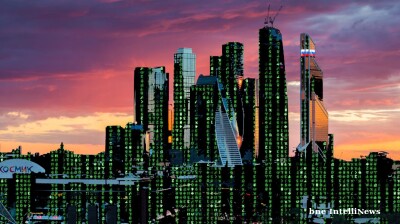The governments in the six Western Balkan states have increasingly been using technology to suppress opponents, carry out mass and targeted surveillance and filter content and access to digital platforms, a survey carried out by BIRN showed on April 29.
“Biometric surveillance and facial recognition technologies are expanding rapidly across the Balkans, raising serious privacy and ethical concerns, particularly in Albania, Kosovo, Montenegro and Serbia,” BIRN’s report noted.
The report said that across the Balkans, journalists, human rights defenders and activists are victims of increasing censorship, surveillance and legal harassment by governments.
That includes pressure on independent journalists in Albania, Bosnia & Herzegovina’s Republika Srpska, Kosovo, Montenegro, North Macedonia and Serbia.
In Albania, the Smart City project envisages the installation of 4,500 security camera, including Automatic Number Plate Recognition (ANPR) cameras across large cities.
“While the initiative promises to improve traffic safety and reduce the need for political presence, it has sparked concerns over data protection, transparency and the misuse of sensitive information,” BIRN noted.
The country needs to set more clear guidelines for users’ consent to prevent authorised surveillance and profiling.
In Kosovo, there is no explicit state censorship, but uses indirect means to influence media information, including restricting their access to information and favouring certain media.
“Surveillance in Kosovo is opaque, with limited information on private-sector involvement or biometric data use. The law authorises surveillance of digital communications, with the Chief State Prosecutor and the Kosovo Intelligence Agency (AKI) overseeing interception activities. The use of real-time interception, location tracking and metadata collection raises concerns about privacy and oversight,” the report said.
In Montenegro, the interior ministry has secretly acquired biometric facial recognition software, Better Tomorrow, to use it in public spaces in the capital Podgorica and the cities of Bar and Budva.
“Despite initial approval for video surveillance, the use of biometric technologies was not disclosed,” BIRN said.
The country’s Personal Data Protection Agency (AZLP) has ordered the deactivation of the facial recognition software, but its use has raised concerns over lack of transparency of the institutions.
In Serbia, there is a controversy regarding the adoption of biometric facial recognition technologies in public spaces as the country has no legal framework for that. Despite that, the authorities have installed numerous cameras with facial recognition technology in public areas amid opposition by the civil society.
“Serbia’s extensive surveillance network, which includes tools for mass data collection, such as social media monitoring and phone tracking, has been linked to the targeting of political opposition, journalists and activists,” the report said.
According to the report, in October 2024, two members of the civil sector in Serbia received a warning from Apple that their phones were potential targets od spyware attacks. According to Amnesty International’s investigation, the possible attacks came from devices using the Pegasus technique, sold exclusively to governments.
“This strongly suggests that the Serbian government or state-affiliated actors were behind these cyber attacks,” the report said. There were several similar attacks this year.
Tech

Revolut receives green light from central bank to launch Hungarian branch
Revolut has grown into a significant competitor for traditional Hungarian banks, particularly in foreign exchange and money transfers.

Defence conglomerate Czechoslovak Group acquires Serbian drone tech company MUST Solutions
CSG has been on a shopping spree propelled by its boosted sales following the Russian full scale invasion of Ukraine in 2022 as well as armed conflicts in the Middle East and Africa.

Japan’s Nintendo predicts sales of 19mn Switch 2 units to March
The Switch 2 marks Nintendo’s most expensive hardware platform to date and represents the company’s principal long-term base for its extensive roster of first-party franchises.

Kyrgyzstan’s president addresses son’s involvement in creating digital bank with Binance founder ‘CZ’
Crypto kingpin Changpeng Zhao, two weeks ago pardoned by Donald Trump over money laundering, is adviser to country’s leader Japarov.




